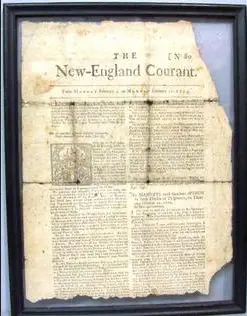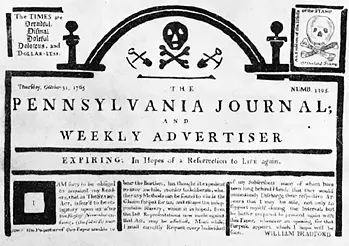Newspapers came second place because they weren't originally intended to be vehicles of "social interaction" as it were.
I don't know if you are aware of this, but one of the first newspapers in the United States to make a name for itself was the New England Courrant, founded by James Franklin - and later lead by his brother Benjamin (yes, that Franklin!).
But as with anything related to the printing press in those days, mass media was deemed a better vehicle for preaching morality, publishing satire, engaging in some political debate - but never really become a channel that the common man could really relate to until much further on in its development.
In fact it's not until 1750 that newspapers started showing an interest in reporting on public affairs, general news, and becoming accessible to the common man.
So, to me, this seems like the real reason newspapers didn't initially take off as the number one vehicle for social interaction - and so people relied more heavily on word of mouth and other traditional means of communication.
I don't know if you are aware of this, but one of the first newspapers in the United States to make a name for itself was the New England Courrant, founded by James Franklin - and later lead by his brother Benjamin (yes, that Franklin!).

But as with anything related to the printing press in those days, mass media was deemed a better vehicle for preaching morality, publishing satire, engaging in some political debate - but never really become a channel that the common man could really relate to until much further on in its development.

In fact it's not until 1750 that newspapers started showing an interest in reporting on public affairs, general news, and becoming accessible to the common man.
So, to me, this seems like the real reason newspapers didn't initially take off as the number one vehicle for social interaction - and so people relied more heavily on word of mouth and other traditional means of communication.